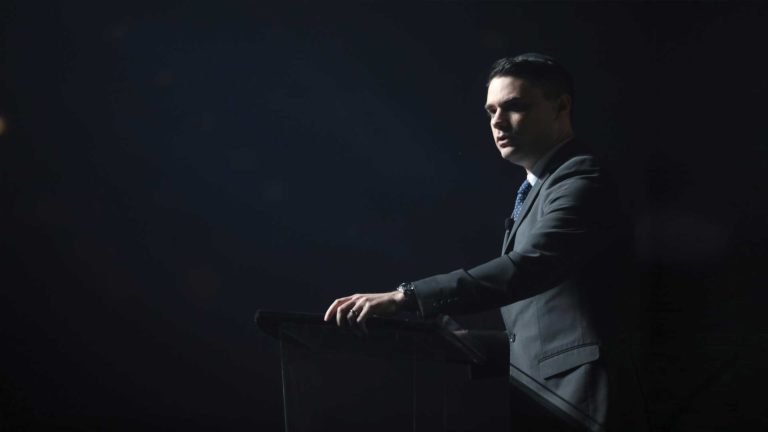Abraham Kuyper left behind a lasting legacy. There is, most notably, his indispensable role in the Doleantie of 1886, in which he led an exodus of conservative churches from the official, very liberal, Dutch state church. However, there is more church historical significance to Kuyper, especially for later church history. Moreover, unfortunately, not everything in his legacy is endearing.
Kuyper was an influential man. He was a prolific writer and people looked to him for leadership. Oftentimes, if Kuyper wrote or said something, many Reformed people took that as being the final word on the subject. There was some critical analysis of his thinking during his lifetime, but what little there was went mostly unheeded. “Father Abraham” was for many people the epitome of what it means to be Reformed.
For better
There was much that was solidly Reformed about him. He had some good emphases.
For instance, he emphasized the autonomy of the local church. Kuyper was opposed to ecclesiastical hierarchy.
Another good emphasis was his eye for church history. He had a solid appreciation for Calvin, Laski, and other great Reformed theologians of the past. He taught the churches to value their history.
God’s sovereignty and the antithesis
Another emphasis worth mentioning is the sovereignty of God over all of life. One of Kuyper most famous sayings was: “There is not a square inch in the whole domain of our human existence over which Christ, who is Sovereign over all, does not cry: ‘Mine!’”
Closely related to that was his emphasis on the antithesis. Human beings are either for or against Christ. No one is neutral. The antithesis is the great divide between belief and unbelief. In his politics, Kuyper was sometimes accused of creating the antithesis, of dividing the Netherlands into two hostile camps. In response to that, Kuyper claimed that he simply recognized the antithesis.[1] The recovery of this emphasis is one of his great contributions to our Reformed church history.
Worldview
Another one is his conception of the Reformed worldview. In 1898, Kuyper travelled to the United States and gave a series of six lectures – the “Stone Lectures” – at Princeton Seminary. In these lectures he laid out how Christianity is not simply theology or religion. It is a conception of the world, a philosophy of life. The Christian faith is something that has a bearing on the way we look at everything, and the way we think about everything. Our contemporary concept of a Christian worldview comes to us directly from Abraham Kuyper. Before Kuyper, no one really thought or spoke in those terms. One could say that it was implied or assumed, but it wasn’t explicit.
“Train up your child…” (Prov. 22:6)
Kuyper’s impact on Reformed education is especially worth noting. Kuyper had a passion for distinctively Reformed education at every level, from elementary to university. He was also a key figure in getting the Netherlands to financially support independent Christian education. In the Netherlands, Christian elementary and high school education is fully funded by the state. This is directly because of Kuyper. Kuyper argued that Christian education should be on the same footing as public education and, as a politician, he made it happen. Now we can debate the rightness or wrongness of Christian education receiving public funds, but there is no getting away from the fact that Christian education mattered to him and he wanted to make it available for everyone who wanted it.
This has a bearing on North America as well. Calvin College was established in Grand Rapids in 1876. It was initially meant just to be a preparatory school and seminary for the Christian Reformed Church. But later, as Kuyper’s views took hold in the CRC, it became a liberal arts college along the same lines as the Free University. Kuyper’s emphasis on Christian education would also have an impact on Canadian Reformed people. Because of him and others, we also value the idea of a Christian school that imparts a distinctively Christian worldview to its students. We recognize that public schools follow a secular worldview and therefore our covenant children don’t belong there. Humanly speaking, at least some of the credit for this way of thinking has to be given to Kuyper.
For worse
However, Kuyper also had some controversial views. Let me just briefly mention them.
Many Reformed people appreciated Kuyper’s emphasis on the antithesis. However, Kuyper had another idea related to culture that some Reformed people appreciated and others didn’t: common grace.
Common grace
He believed that God had a special grace for the elect. This was the saving grace that he has in Jesus Christ. But there is also a common grace, a grace that God shows to all human beings. With this grace, he gives good things, he restrains wickedness, and he allows unbelievers to make true scientific discoveries, produce beautiful art, compose compelling music, and many other things.
This became controversial because some thought that the word “grace” in Scripture always refers to what God does for his people because of Christ. It is true that the word “grace” is not the best word to describe what Kuyper had in mind. Moreover, things became even more complicated when people focussed on the concept of common grace without limiting it by the antithesis. Common grace became so emphasized that believers started becoming more and more worldly and forgetting about the differences that they have with unbelievers. This became a problem in the Reformed Churches in the Netherlands and this also became a problem in the Christian Reformed Church in North America. This doctrine bore the fruit of worldliness and this led many to react against it. As an example of how this works out in practice, a CRC pastor in Calgary named John van Sloten has used episodes of The Simpsons as the text for his sermons. With a doctrine of common grace in the background, he argued that God can reveal himself just as well through cultural phenomena as through his written Word. Therefore, pastors can use music, movies, and TV shows as the “texts” for their sermons. This is what happens when the antithesis is no longer recognized.
Another controversial view of Kuyper had to do with the church. He distinguished between the church as institute and the church as organism. The church as institute is the local congregation and the church as organism includes all believers everywhere, or the church in its broadest sense.
Some objected to the terminology – “institute” and “organism” are not words found in Scripture or in our Reformed confessions. In fact, the word “organism” was seen by many to have more of a connection to German philosophy than to the Bible. Again, there was also the fruit of this distinction: some placed all the emphasis on the church as organism, seeing that as the “real” church, and then used that to justify cooperation with non-Reformed people in many different endeavours, including Christian education. After all, if the church as organism is the “real” church, and all believers are in this church together, then shouldn’t we work together for God’s kingdom? One could also argue that this view was behind the reluctance of the concerned in the Hervormde Kerk to leave, even when things were so obviously off the rails. Why were they staying in a church where ministers were denying the resurrection of Christ when Paul so clearly says in 1 Corinthians 15 that to deny this is to deny the gospel itself? Kuyper’s weak view of the church probably allowed this to be rationalized.
Baptism and the Liberation of 1944
There were other issues, but let me finish with baptism. This is important because of the role it plays in the Liberation of 1944. Kuyper maintained that baptism is administered on the presumption that the child receiving baptism is regenerated – we presume he is saved. The presumption of regeneration then becomes the ground or the basis for administering baptism. That presumption can later turn out to have been wrong. It may become evident that a child has not been regenerated. In that case, Kuyper taught, the baptism was not a real baptism.
Against that, Kuyper’s critics argued that baptism is administered on the basis of God’s command and his promises. The starting point is God’s covenant, not what might be presumed about what has happened with regard to regeneration in the one being baptized.
Now Kuyper had the freedom to hold these views. While we may not agree with them, these views do fall under the umbrella of confessional orthodoxy. While he taught these views with conviction, with most of these positions he did not himself insist that one had to hold them in order to be Reformed.[2] Problems arose when the next generation made that insistence. They made Kuyper’s theology the exclusive touchstone of Reformed orthodoxy. One could no longer disagree with Kuyper without being accused of being unReformed. That’s where problems began. Klaas Schilder and other theologians took issue with Kuyper’s theology of baptism, his doctrine of the church, his view of the covenant, and other points. When they did this, the followers of Kuyper insisted that such critiques were a breach of orthodoxy. This led to the Liberation of 1944, a foundational event in the history the Canadian Reformed Churches.
Conclusion
Today Kuyper has been largely forgotten by many. This is unfortunate. He was a giant in our history. God worked in powerful ways in his life to bring him to true faith. Then he was used by God in a powerful way to point a straying church in the right direction. Whether we realize it or not, a lot of the ethos in our Reformed churches has been shaped by Abraham Kuyper or by reactions against Abraham Kuyper. We can’t ignore him.
Endnotes
[1] Louis Praamsma’s Let Christ Be King: Reflections on the Life and Times of Abraham Kuyper
[2] See Hendrik Bouma’s Secession, Doleantie, and Union: 1834-1892. He did make that insistence with regard to presumptive regeneration.
Dr. Bredenhof has also written a companion piece called “Abraham Kuyper: larger than life.”














